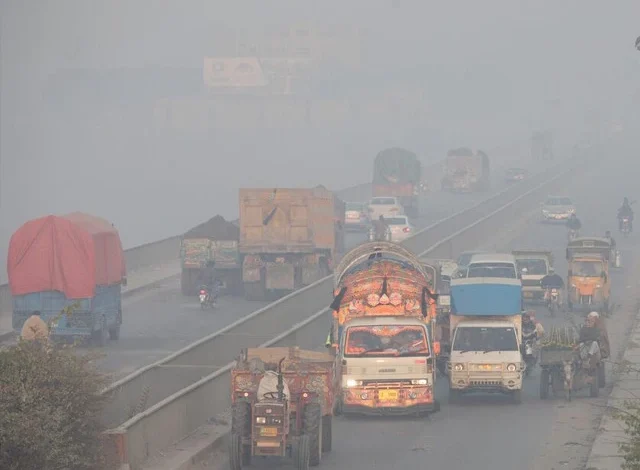To stop the deteriorating air quality, Punjab prohibits the use of wood and charcoal in restaurants.

In an effort to reduce the deteriorating air pollution, the Punjab government has banned restaurants and barbeque establishments from using wood and charcoal throughout the state. Every hotel and restaurant has been given 15 days to install smoke control equipment and suction hoods, failing which they risk legal action under environmental regulations.
The Punjab Food Authority (PFA) and the Environment Protection Agency (EPA) have begun combined operations to examine food outlets and enforce compliance, per an order issued on Wednesday. The directive primarily targets traditional grilling sets and barbecue restaurants that are known to release a lot of smoke and particle matter.
According to EPA Director General Imran Hamid Sheikh, field teams have been assembled in every district to guarantee prompt enforcement. Punjab does not have space for eateries that generate smoke. Strict action will be taken against those who do not install suction systems within 15 days, he warned. Deputy commissioners throughout the province have been directed to supervise implementation, Sheikh continued. He issued a warning: “Punjab will not tolerate further deterioration in air quality.”
According to officials, the new actions are a part of a more aggressive campaign to reduce smog before winter arrives. In addition to inspecting restaurants, EPA teams have been directed to look for open burning, industrial pollutants, and vehicle smoke.
The crackdown occurs while Punjab’s air quality is getting worse. The province has an average Air Quality Index (AQI) of 164, which puts it in the “Unhealthy for Sensitive Groups” category, according to the EPA’s most recent eight-hour report. With an AQI of 239, Gujranwala had the highest pollution levels, followed by Kasur (209) and Lahore (206), all of which were categorised as “Very Unhealthy.”
Concerning figures were also recorded by other significant cities, such as Hafizabad (175), Faisalabad (181), and Narowal (183). Even tiny cities like Chiniot, Sialkot, and Okara had AQI readings between 158 and 175—much higher than what is considered safe.
The EPA pointed out that PM2.5 particulate data, which presents the most health risk because of its capacity to enter the bloodstream and lungs deeply, was used to calculate the AQI. Health officials caution that exposure to such elevated levels can cause respiratory distress, weakened immunity, and other health issues, especially in older adults and children.
Consistency in enforcement is crucial, according to environmental experts.
Lahore’s haze is made worse by the eastern breeze in the winter.